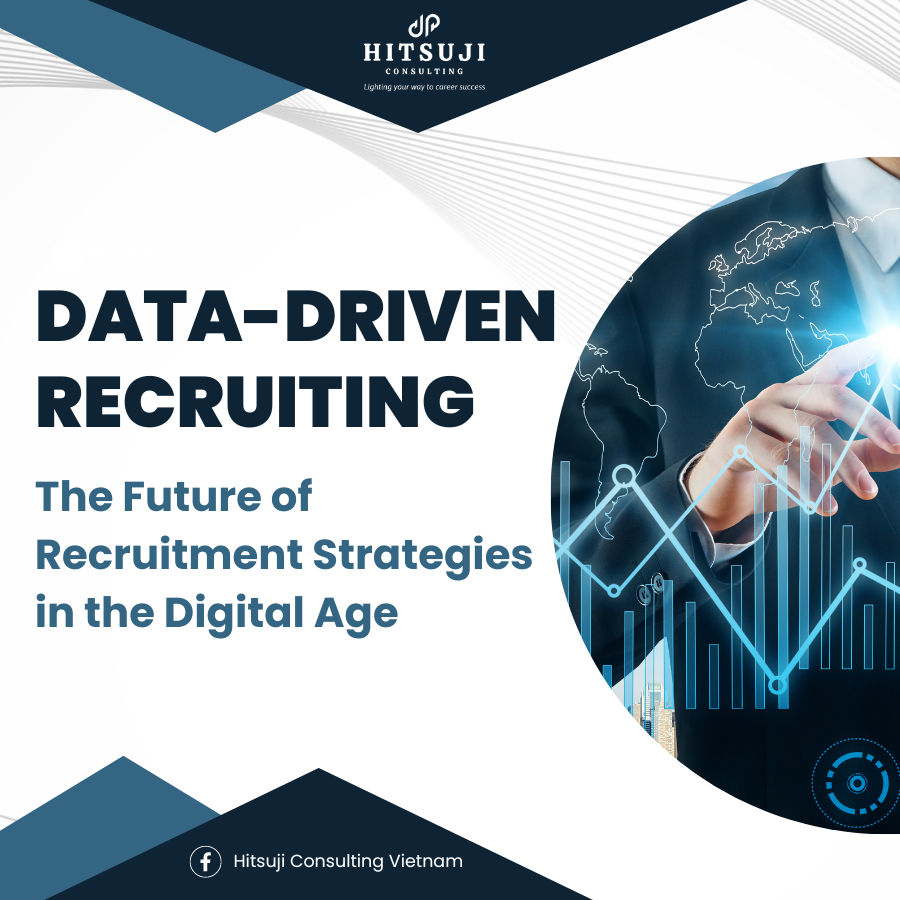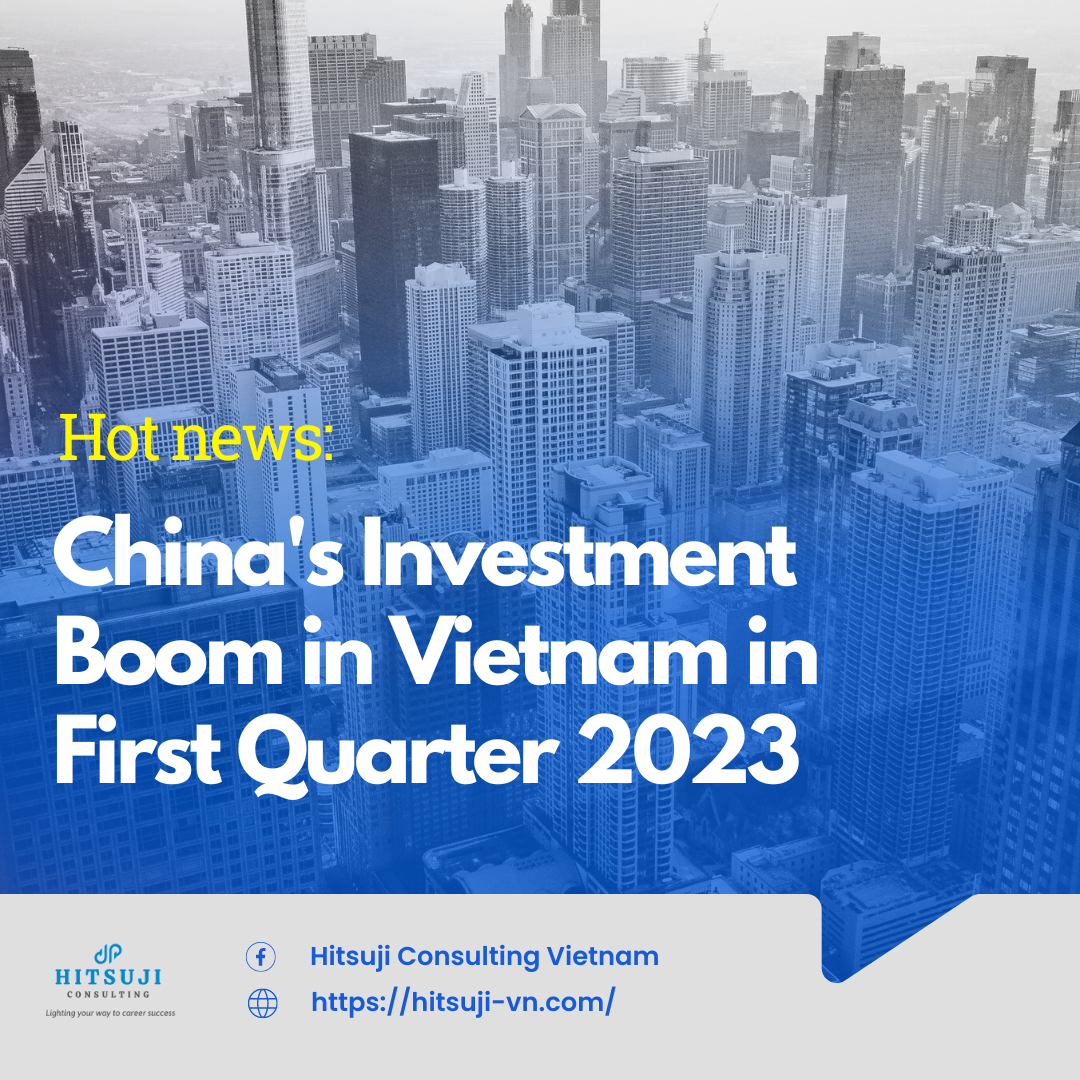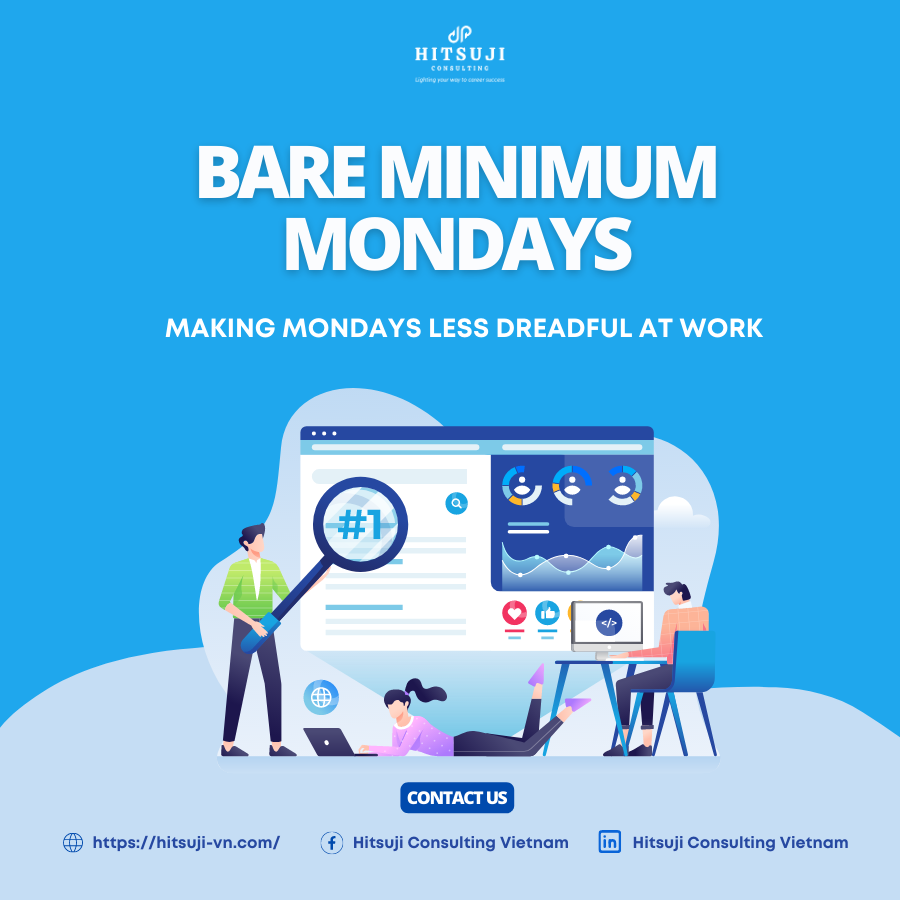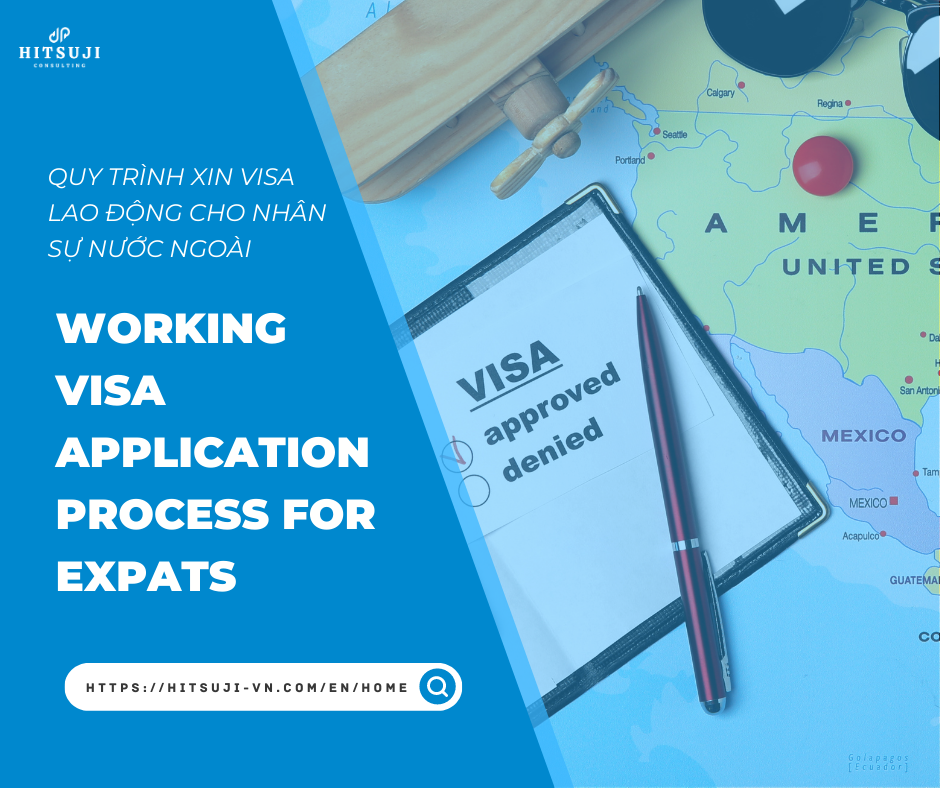Data-driven Recruiting: The Future of Recruitment Strategies in the Digital Age
Posted: 11/05/2023 - Views: 530

In the era of Industry 4.0, the rapid development of digital technology has provided a significant advantage for companies that know how to utilize data. Data-driven techniques are not only effectively used in marketing, finance, and accounting strategies, but are also being applied in the recruitment process by large companies worldwide, creating the term "Data-driven Recruiting."
In this article, let's explore Data-Driven Recruiting with Hitsuji, a remarkable future recruitment trend!
1. What is Data-driven Recruiting?
Data-driven Recruiting is the process of applying database platforms and analysis to the recruitment process, leading to informed hiring decisions.
To accurately evaluate the effectiveness of the recruitment process, recruiters often collect various internal and external indicators. For example, the source of candidates, recruitment costs, time to hire for a position, etc. This helps eliminate unfounded assumptions and personal biases, ensures transparency in the recruitment process, and helps companies find the most suitable candidate for the position.
2. How is Data-driven Recruiting applied?
Candidate Sourcing
Knowing where candidates come from is a crucial metric for recruiters. This is also a prime example of using data to make decisions. During high recruitment periods, HR must continuously monitor which channels bring in the most and highest-quality candidates, as well as how much each application costs.
A company typically uses multiple recruitment channels such as job boards, advertisements, Facebook Ads, Google Ads, headhunting, etc. Collecting and analyzing data on these channels helps them adjust their recruitment strategies in a timely manner. The channels that maximize candidates while optimizing costs are invested in, while those that are not effective can be temporarily suspended.
Screening and Selection Process
This is the process in which recruiters screen resumes to select the most suitable candidates for the position. The data collected includes:
In this article, let's explore Data-Driven Recruiting with Hitsuji, a remarkable future recruitment trend!
1. What is Data-driven Recruiting?
Data-driven Recruiting is the process of applying database platforms and analysis to the recruitment process, leading to informed hiring decisions.
To accurately evaluate the effectiveness of the recruitment process, recruiters often collect various internal and external indicators. For example, the source of candidates, recruitment costs, time to hire for a position, etc. This helps eliminate unfounded assumptions and personal biases, ensures transparency in the recruitment process, and helps companies find the most suitable candidate for the position.
2. How is Data-driven Recruiting applied?
Candidate Sourcing
Knowing where candidates come from is a crucial metric for recruiters. This is also a prime example of using data to make decisions. During high recruitment periods, HR must continuously monitor which channels bring in the most and highest-quality candidates, as well as how much each application costs.
A company typically uses multiple recruitment channels such as job boards, advertisements, Facebook Ads, Google Ads, headhunting, etc. Collecting and analyzing data on these channels helps them adjust their recruitment strategies in a timely manner. The channels that maximize candidates while optimizing costs are invested in, while those that are not effective can be temporarily suspended.
Screening and Selection Process
This is the process in which recruiters screen resumes to select the most suitable candidates for the position. The data collected includes:
- Resume screening - education, work experience, degrees, etc.
- Skill assessment - scores from the company's evaluation, overall competence, personality, and job orientation.
- Interview - scores for each answer related to work experience, communication skills, and cultural fit with the company.
Candidate Experience
The candidate experience is their overall impression of the company's recruitment process from the time they submit their application to receiving an interview invitation, going through the interview, receiving an offer, and onboarding.
After the candidate has been onboarded for a period of time, recruiters can also evaluate their job satisfaction. Specifically, this metric compares the candidate's expectations during the recruitment process with their actual job experience. A higher score indicates that the job description for the position accurately reflects the actual job responsibilities.
3. Benefits of Data-Driven Recruiting:
Saving time and cost in recruitment
Collecting data can help recruiters "see" bottlenecks in the current recruitment process. From there, they can decide whether to eliminate that step or automate it to optimize recruitment time. However, first, recruiters need to outline the current process and collect important metrics such as:
- Candidate drop-out rate, Turnover rate
- Average recruitment time per position
- Recruitment methods: job websites, recruitment events, referrals, headhunting, etc.
- Time allocation for each recruitment stage (how long it takes to find candidates and how long it takes to interview them, etc.)
Furthermore, the data obtained during the recruitment process creates a "portrait" of candidate personas. This helps recruiters have a clearer view of the pool of candidates they have, based on a comparison with the ideal candidate they are looking for. By focusing on important factors, they can achieve the highest recruitment efficiency and eliminate inefficient or unnecessary performance processes, reducing the total cost of recruitment significantly.
Making accurate and objective recruitment decisions
The cost of making the wrong recruitment decision is extremely high. Hiring the wrong person not only wastes the company's time, money, and effort but also makes recruiters work hard to find a replacement. Therefore, accurately and comprehensively evaluating the candidate's skills is the top priority. Only data can help business owners and recruiters achieve this, eliminating the intuitive factor in decision-making.
By collecting and analyzing data in candidate evaluation (evaluating scores based on the competency framework, structured interview results, online test results, etc.), recruiters will have a more comprehensive view of the candidate's persona. From there, they can make more objective decisions in the recruitment process.
Hitsuji has delved into the realm of Data-driven Recruiting with you, which is hailed as a groundbreaking advancement in the field of recruitment during the 4.0 technology era. With a thorough comprehension of the advantages that come with utilizing and managing data, recruiters can efficiently streamline the recruitment process, while simultaneously saving both time and money.
Follow Hitsuji Consulting Vietnam's fanpage or visit the website: https://hitsuji-vn.com/ to update useful articles on recruitment topics right now!
Contact us at:
Phone: (+84) 0974 689 370
Email: katherine@hitsuji-vn.com
Website: https://hitsuji-vn.com/
Hitsuji Consulting Vietnam is a recruitment agency that not only helps you find job opportunities but also advises you with necessary information about the working environment, regime, and culture in Vietnam.
Contact us at:
Phone: (+84) 0974 689 370
Email: katherine@hitsuji-vn.com
Website: https://hitsuji-vn.com/








